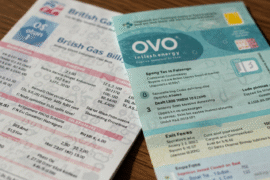This article may contain references to products or services from one or more of our advertisers or partners. We may receive compensation when you click on links to those products or services. Nonetheless, our opinions are our own.
The information presented in this article is accurate to the best of our knowledge at the time of publication. However, information is subject to change, and no guarantees are made about the continued accuracy or completeness of this content after its publication date.

Updated by Albert Fang
Key Highlights
- Universal life insurance and variable life insurance are popular types of permanent life insurance, offering lifelong protection and cash value growth.
- Universal life allows you to adjust premiums and death benefits, while variable life ties its cash value to market performance.
- Understanding your financial goals, risk tolerance, and investment expectations is crucial when choosing between the two.
- Variable life offers higher returns but comes with greater risk. Universal life is more stable and predictable.
- Consulting a financial advisor can help determine the best life insurance option for your needs.
Introduction
Life insurance provides financial security for you and your family. Permanent life insurance stands out because it offers lifetime coverage and the ability to build cash value over time. The two main types of permanent life insurance are universal life and variable life, each with unique benefits tailored to different financial needs.
Understanding Life Insurance: Universal vs. Variable
Navigating life insurance can be complex. Among the available options, universal life and variable life are two primary types of permanent insurance. Unlike term life insurance, which only covers a set period, both provide lifelong protection and accumulate cash value.
The key difference between them is how cash value grows. Universal life policies earn interest at a guaranteed minimum rate, providing stability. Variable life insurance, however, ties cash value to market-based investments, offering the potential for higher returns but with increased risk.
Defining Universal Life Insurance
Universal life insurance offers flexibility. You can adjust your premium payments and death benefits within certain limits, allowing you to manage your policy as your financial situation changes.
For instance, if you experience a major life event such as having a child or changing jobs, universal life insurance lets you modify your premium payments to match your budget. Similarly, you can increase or decrease the death benefit to ensure your family has the necessary financial protection.
Variable life insurance provides policyholders with greater control over cash value investments. Unlike universal life, where the insurance company manages the cash value, variable life allows you to choose from various investment options, such as mutual funds, stocks, or bonds.
This flexibility means the potential for higher returns, but it also introduces risk. Your cash value can fluctuate with market conditions, which may impact both your policy’s growth and the eventual death benefit.
Key Differences Between Universal and Variable Life Insurance
The choice between universal and variable life insurance depends on your financial goals and risk tolerance. If you prioritize stability and flexibility, universal life is likely the better fit. However, if you are comfortable with investment risks and seeking higher returns, variable life may be the better choice.
Coverage Flexibility Compared
A major difference between the two is premium and death benefit flexibility:
- Universal life insurance allows adjustments to premium payments and death benefits, making it a good fit for individuals with fluctuating income or changing financial needs.
- Variable life insurance typically has fixed premiums and fewer options for adjusting the death benefit. However, it allows policyholders to make investment choices to potentially grow cash value more aggressively.
Investment Options and Risks
The way each policy manages investments significantly affects their risk and reward potential:
- Universal Life Insurance: Cash value grows based on a minimum guaranteed interest rate, making it more predictable and stable.
- Variable Life Insurance: Cash value depends on market-based investments, meaning it can grow faster but is subject to market fluctuations. Investment options typically include:
- Stocks
- Bonds
- Money market instruments
While variable life offers higher earning potential, it requires active management and carries the risk of financial loss if the market performs poorly.
Voted "Best Overall Budgeting App" by Forbes and WSJ
Monarch Money helps you budget, track spending, set goals, and plan your financial future—all in one app.
Get 50% OFF your first year with code MONARCHVIP
Beginner’s Guide to Choosing the Right Insurance
Selecting the right life insurance policy is a major financial decision. Consider your long-term goals, risk tolerance, and financial situation before making a choice.
Assessing Your Financial Goals and Risk Tolerance
Before comparing policies, identify your objectives. Ask yourself:
- Do I need financial security for my family?
- Am I looking to build cash value for future use?
- How comfortable am I with investment risks?
If stability and lower risk are your priority, universal life may be the best option. If you are open to risk and want higher returns, variable life might be more suitable.
What You Need to Get Started
Once you determine your financial needs and risk tolerance:
- Research reputable insurance companies and compare their offerings.
- Request multiple quotes to compare costs and coverage.
- Evaluate the financial strength and customer service reputation of each insurer.
- Consult with a financial advisor for expert guidance.
Step 1: Evaluate Your Long-term Financial Objectives
Consider whether you need insurance primarily for family protection or for investment purposes. Term life insurance is a good option for basic coverage, while universal and variable life offer investment benefits.
Step 2: Understand the Costs and Fees Involved
Both universal and variable life policies come with costs beyond just premiums, including:
- Cost of Insurance (COI): Charges deducted from cash value to cover administrative and insurance expenses.
- Investment Fees: Variable life policies often have management fees for investment accounts.
- Surrender Fees: Charges for early withdrawals from the policy.
Missing premium payments on a universal life policy may result in policy lapse if there isn’t enough cash value to cover costs.
Step 3: Consult with a Financial Advisor
Navigating the complexities of universal and variable life insurance can be challenging. A financial advisor can:
- Analyze your risk tolerance.
- Help structure an investment strategy.
- Clarify complex policy details.
Pros and Cons of Universal Life Insurance
Advantages
- Lifetime coverage ensures your family is protected.
- Flexible premium payments allow policy adjustments based on financial needs.
- Stable cash value growth provides financial security.
Disadvantages
- Interest rates fluctuate, potentially reducing long-term cash value growth.
- Requires ongoing monitoring to ensure policy stays funded.
Pros and Cons of Variable Life Insurance
Advantages
- Higher growth potential due to investment options.
- Opportunity for greater cash value accumulation over time.
Disadvantages
- Market volatility can lead to financial losses.
- Investment management can be complex and requires active oversight.
Conclusion
Choosing between universal and variable life insurance depends on your financial objectives and risk tolerance. Universal life provides stability and flexibility, while variable life offers higher earning potential but comes with market risks.
Before making a decision, carefully assess costs, risks, and benefits. Consulting a financial expert can provide clarity and ensure you select a policy that aligns with your needs.
Frequently Asked Questions
What is the difference between universal and variable life insurance?
Universal life allows flexible premiums and death benefits, while variable life offers investment options but carries higher risk.
Who should consider universal life insurance?
Those with fluctuating income or seeking flexibility in payments and coverage.
Is variable life insurance a good investment?
It depends on your risk tolerance and financial goals. A financial advisor can help determine if it aligns with your needs.
Can I switch from universal to variable life insurance?
Switching requires canceling the existing policy and applying for a new one.
How does cash value grow in each policy?
Universal life provides a guaranteed minimum interest rate, while variable life depends on market performance.

Reviewed and edited by Albert Fang.
See a typo or want to suggest an edit/revision to the content? Use the contact us form to provide feedback.
At FangWallet, we value editorial integrity and open collaboration in curating quality content for readers to enjoy. Much appreciated for the assist.
Did you like our article and find it insightful? We encourage sharing the article link with family and friends to benefit as well - better yet, sharing on social media. Thank you for the support! 🍉
Article Title: Universal Life Vs. Variable Life: Making The Right Choice
https://fangwallet.com/2025/02/14/universal-life-vs-variable-life-making-the-right-choice/The FangWallet Promise
FangWallet is an editorially independent resource - founded on breaking down challenging financial concepts for anyone to understand since 2014. While we adhere to editorial integrity, note that this post may contain references to products from our partners.
The FangWallet promise is always to have your best interest in mind and be transparent and honest about the financial picture.
Become an Insider

Subscribe to get a free daily budget planner printable to help get your money on track!
Make passive money the right way. No spam.
Editorial Disclaimer: The editorial content on this page is not provided by any of the companies mentioned. The opinions expressed here are the author's alone.
The content of this website is for informational purposes only and does not represent investment advice, or an offer or solicitation to buy or sell any security, investment, or product. Investors are encouraged to do their own due diligence, and, if necessary, consult professional advising before making any investment decisions. Investing involves a high degree of risk, and financial losses may occur including the potential loss of principal.
Source Citation References:
+ Inspo
There are no additional citations or references to note for this article at this time.












































